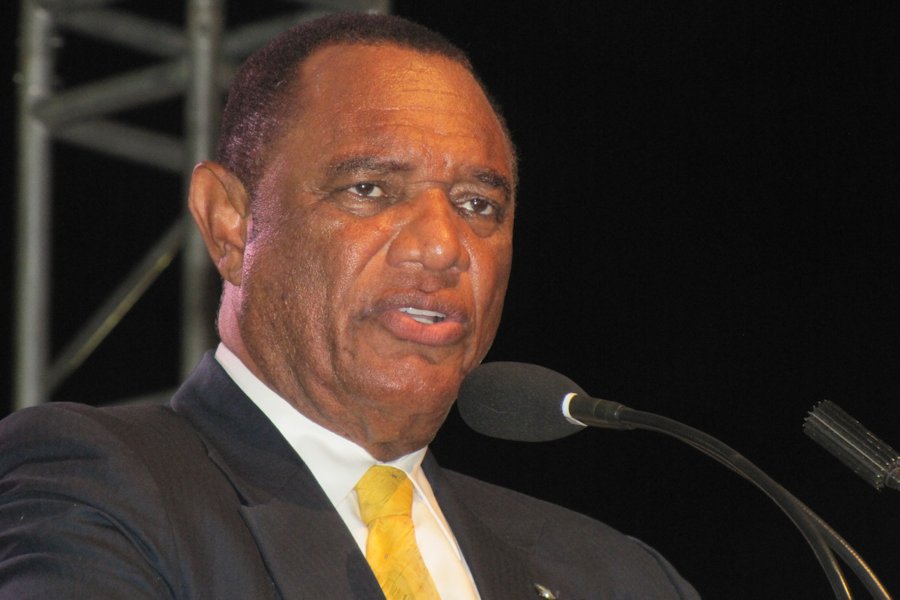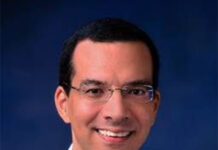
President Luis Alberto Moreno, Honourable Ministers, IDB Governors from The Bahamas, Barbados, Trinidad and Tobago, Suriname, Jamaica, Guyana, Mr. Warren Smith, the President of the Caribbean Development Bank (CDB), senior IDB staff, public officers, members from the Grand Bahama Chamber of Commerce, Ladies and Gentlemen: Good morning!
It is my honour and pleasure to welcome you all to the Magic City of Freeport and the Island of Grand Bahama. I trust that notwithstanding the heavy agenda that has been laid before you, you will still find time to explore the beauty of this island which is home to our nation’s second city.
Mr. President:
The Bahamas Marine Mammal Research as, like the rest of the members in the Caribbean Constituency of the Bank, has come to appreciate the importance of these meetings. They allow us to caucus on the pressing matters within the Bank that affect our region. In particular, they afford us the opportunity to present the region’s positions to you, Mr. President, in advance of the Annual Meeting. I must commend you, President Moreno, for setting aside this period each year, and for taking the time to listen attentively to the various points of view from within the Caribbean.
The Economic and Policy Context
Indeed you first convened these meetings, Mr. President, at the time when the Caribbean was coming to terms with the very fragile and tenuous recovery of the global economy from its most protracted economic and financial crisis since the Great Depression. It was a crisis that exposed many of our own structural frailties and raised to a critical level the multi-faceted dependence we all have on the IDB, the CDB and other international financial institutions.
Even as we continue to emerge from the Great Recession, the scars of what we have already had to endure are glaringly evident. But even as we reflect on the wounds we have suffered and from which we are still recovering, we are challenged to continue to adhere to sound policies and to follow sensible public sector investment strategies so that our growth prospects can be maximized.
Healthy growth speaks to reducing, in many cases, unacceptably high unemployment, a problem that is especially vexing among the youth of our respective jurisdictions. Healthy growth also speaks to the imperative of addressing our major social maladies, chief among them crime and poverty.
Most solutions point to the need for a more prominent role for the private sector in developing and sustaining the engines of economic growth. In this regard, we anticipate that the reform of the IDB’s private sector lending framework will also result in increased financing for a broader range of economic growth-producing enterprises within the Caribbean.
Debt and Vulnerability
Mr. President:
Although the pace is uneven, our regional outlook is beginning to improve, premised in many instances on strengthening tourism demand and in other cases on healthy export markets for natural resources. This is a direct result of the unorthodox fiscal policies and aggressive central bank interventions that are guiding and propelling the world’s leading economies through their respective recoveries.
Meanwhile, the technical and financial support from international financial institutions and development agencies, including the Inter-American Development Bank (IDB) and the Caribbean Development Bank, cannot be understated as they continue to undergird the pivotal reforms to our own policy frameworks that position us to take optimal advantage of the recovery trends in the global economy.
Mr. President, I am aware that the Bank is re-examining its lending framework to ensure that it remains responsive to the increased demand for development financing within the context of fiscal consolidation imperatives that limit the capacity of the major industrial countries to fund development lending in the less developed world. At stake therefore is how assistance is given out and how it is directed on a regional and country-by-country basis.
The IDB must, I would submit, be mindful of its critical role, both technical and financial, in supporting the vulnerable and highly indebted countries in our region. When we must borrow, the ease of access to such funding must not be unduly or unreasonably inhibited. The tendency to categorize our respective countries as middle or high income must be discounted against our very fragile existence, especially having regard to our narrow economic bases, our high structural costs and our increasing vulnerability to climate change and natural disasters.
I know that you have a profound understanding of these problems, Mr. President, and I also know that you are sympathetic to our concerns. I therefore invite you to ensure that these concerns of our region are not relegated to the sidelines but instead are put on the front burner with a view to remediation.
I would be remiss, Mr. President, if I did not acknowledge the contributions that the IDB makes to members of the Caribbean who are not in the constituencies formally represented here today.
First, as a region, we continue to welcome the interventions that are being made in Haiti. An economically prosperous and stable Haiti would augur well for all countries in this region, and particularly so for The Bahamas which, as you know, bears a disproportionately large share of the cost stemming from the outward migration from Haiti to the North.
I also applaud the Bank’s connection through the CDB, with our CARICOM brothers and sisters of the Organization of Eastern Caribbean States (OECS), a relationship that I hope will deepen as these members continue to grapple with challenges of high-debt and low-growth.
Tourism
Mr. President, it is my fervent hope that the reform of the private sector lending arm of the IDB will also bear fruit for the region. High public sector debt in itself is compelling us to accelerate the emphasis on private sector driven growth and to explore how to structure fiscally prudent public-private partnerships with a view to addressing more of the infrastructure gaps which, in turn, would lead to stronger private sector growth.
While I commend the Bank for its visibility in the region, its presence in the private sector needs to increase, and it needs to be especially registered in making the Tourism sector more diversified and resilient. As the primary engine for growth for most of our economies, we must find new ways of increasing and broadening local ownership in the sector, and to promote more eco-based developments.
I encourage you Mr. President, to review the bank’s strategy on investing in the tourism sector and engage in more discussions with our Governors on how best to support such projects in our respective countries.
Energy
Mr. President: about three weeks ago, in my capacity as Chairman of CARICOM, I spoke at the Caribbean Energy Summit meeting in Washington DC. Both you and the CDB President were present together with my counterparts from the region and our host, US Vice President Joe Biden.
The meeting focused on energy challenges and solutions for the Caribbean. Solar, Wind, Wave, Geo-Thermal and other forms of renewable energy are increasingly viable, cost-effective alternatives to fossil-fuel based energy reliance. Indeed the historical reliance on imported fossil fuels puts a significant strain on our growth and entrenches our own contribution to the greenhouse emissions and global warming to which the region is so extremely vulnerable.
Notwithstanding the current reduced prices of fuel on the world market, we cannot assume that this condition is permanent. Mr. President: I do believe that with the IDB’s assistance, the drive to reduce the reliance on fossil fuels can be achieved.
As this gathering is regional in its composition and focus, I beg your indulgence to highlight our own energy reform initiative in relation to the major provider of electricity in the Bahamas, the state-owned Bahamas Electricity Corporation (BEC). I am happy to report that we are poised for a significant regime shift that will not only introduce private players to the production of electricity but expand the range of inputs to energy with a view to driving down costs for businesses and home consumers alike.
I trust that our reforms will also open up another avenue for the IDB to become active with, as indeed it did in the past when the public sector led the investments in the energy sector.
Other Areas
Even as we explore how we might sustain and deepen the regional engagement of the IDB, I want to applaud President Moreno for the presence that the Bank has had in helping to address the socio-economic challenges affecting the development of our region. I applaud the Bank for its efforts in supporting reforms to fight poverty and promote security and justice within our societies. You are also to be applauded, Mr. President, for the high visibility in assisting us with public sector reform and other interventions that support the economic improvement of our citizenry.
Closing
In closing, Mr. President: I wish to express our gratitude to you for ensuring that our region is not marginalized within the IDB, and to thank you for partnering with us to advance our development objectives. Indeed as the Governors depart from here and head to Busan, Korea, they will be looking to you to affirm these sentiments to the wider audience of both borrowing and non-borrowing members of the Bank.
Mr. President, Governors, Ladies and Gentlemen, let me assure you that 2016 will be a year etched in the annals of the Bank as the benchmark against which future Annual Meetings will be judged.
God willing, I hope to welcome all of you back in April 2016 for the 56th meeting of the Inter-American Development Bank, in Nassau, The Bahamas and to embrace you with the warmth of the culture and hospitality of the Bahamian people.
I thank you, and wish you well in your deliberations.







